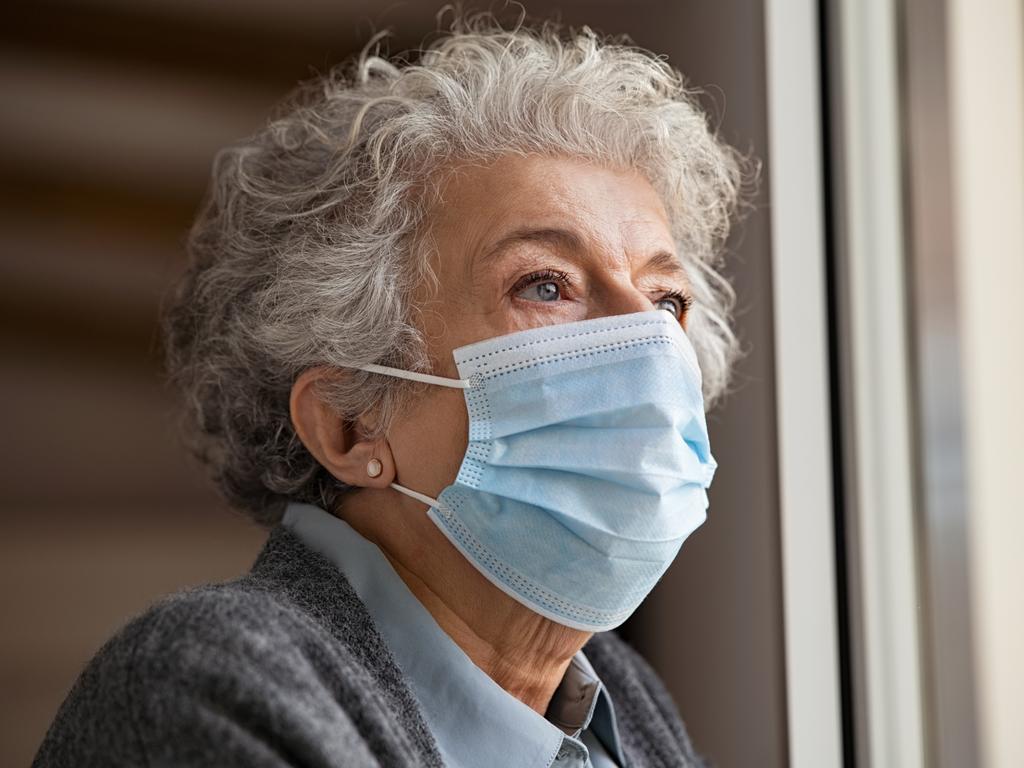Covid pandemic made us less kind, less sympathetic study finds
A new study has revealed one seriously unexpected impact of the Covid-19 pandemic and brutal lockdowns.
The “trauma” of the Covid-19 pandemic had a severe impact on people’s personalities, making the average person less sympathetic, less kind and less open towards others, a new study has found.
The study, which was published the US Public Library of Science journal, found the pandemic and associated restrictions triggered a shift in personality far greater than would have otherwise been expected over the two-year period.
While personality has often been proved to shift gradually over time, significant events of stress and trauma can accelerate that process — and the Covid pandemic was one such event, the researchers found.
Have a similar story? Continue the conversation — chloe.whelan@news.com.au

People were less extroverted, less open, less agreeable and less conscientious in 2021 and 2022, compared with before the pandemic, the study concluded.
More specifically, it found that these changes impacted people’s ability to express sympathy and kindness towards others, their capacity to be open to new concepts, their tendency to seek out and enjoy others’ company, and their ability to strive towards goals and take their responsibilities towards others seriously.
“The pandemic certainly changed our personalities due to the trauma and immense fear that people felt in the last few years,” psychologist Marny Lishman told news.com.au.
“Globally, many people have been disrupted. A lot of people have felt chronically stressed, very fearful and very anxious. Of course, there has also been a lot of disconnection.”

The study assessed more than 7000 participants from across the US aged between 18 and 109, at various points between 2014 and 2022.
At each assessment, participants completed the Big Five Inventory, which measures personality on a scale across five dimensions: extroversion versus introversion, agreeableness versus antagonism, conscientiousness versus lack of direction, neuroticism versus emotional stability, and openness versus closedness to experience.
While there weren’t many changes between pre-pandemic and 2020 personality states, the changes truly ramped up in 2021 and 2022.
In those years, researchers found significant declines in extroversion, openness, agreeableness and conscientiousness.

These changes were akin to about a decade of normal variation, the researchers said — suggesting the Covid pandemic had accelerated the natural process of personality change.
Further, while personality changes usually help people to adapt positively and cope with life events, researchers said the changes observed in the study had the opposite effect.
Typically, age and experience correlate with greater degrees of self-confidence, self-control and emotional stability. In 2021 and 2022, however, participants went in the opposite direction
“Often, when people have change that is imposed upon them — rather than expected change — they really panic in those moments,” Dr Lishman explained.
“That’s why we saw some irrational behaviour, and a lot of people really suffered mentally. We weren’t able to predict what was going to happen next, let alone navigate it.”

The results were particularly drastic for younger adults, who experienced “marked declines” in agreeableness and conscientiousness, and a significant increase in neuroticism.
The changes “may be due in part to social anxiety when emerging back into society, having missed out on two years of normality”, the study said.
Alongside the worrying personality shifts, the study said that wellbeing had significantly decreased in 2021 and 2022, even despite commendable efforts by many people to continue to engage in healthy activities.
Though many had tried to keep up with exercise, healthy eating and social connection, such attempts at normality did little to allay mental health challenges, the researchers found. In fact, mental health and wellbeing decreased drastically across the two years.

“A lot of people were forced to become more guarded, more hypervigilant — especially people who knew someone who got seriously ill or passed away. For all of us, there were a lot of small, daily traumas,” Dr Lishman said.
“When we go through adversity, we practice self-care to help to mitigate that stress. We try to exercise, socialise, see a professional for support. We have family to reach out to and events to look forward to. A lot of that was taken away, so not only were we experiencing adversity, but the pandemic and associated restrictions also prevented us from doing the things that might help.”
In order to reverse such changes, Dr Lishman said it was important to be understanding about why they had come about.
“Be really reflective about where you’re at,” she said.
“Realise that you’ve gone through a really tough few years, and have some self-compassion for how you coped. Then, ask yourself what pathway you want going forward, and what work you need to do to get there. Get support from the right people to make that happen.”
Have a similar story? Continue the conversation — chloe.whelan@news.com.au






